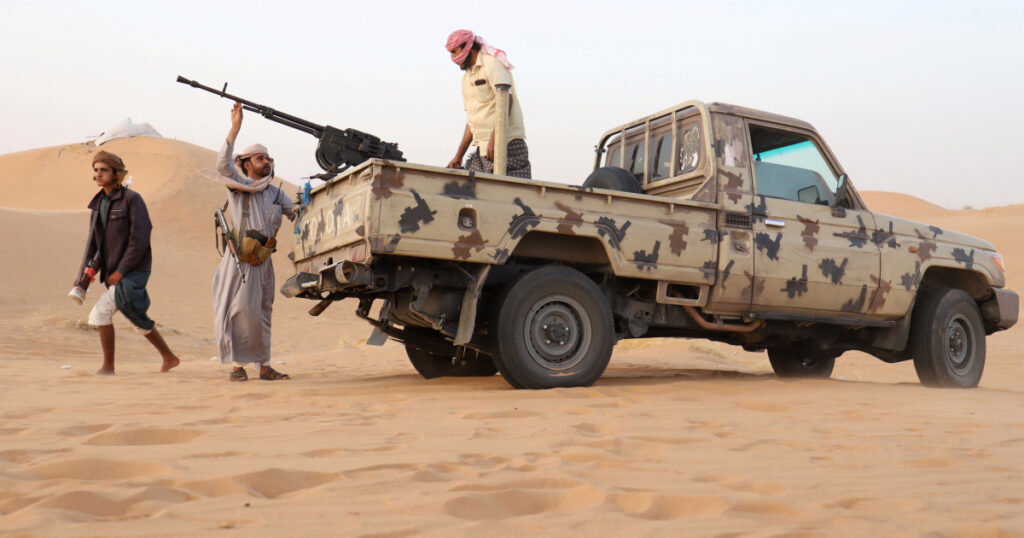Thousands of civilians are displaced in Yemen’s Marib after a Houthi offensive that began at the beginning of September saw the rebel group take hold of a key district within the south of the governorate.
Rahabah, which lies to the east of the Houthi-held capital Sanaa, was captured on September 8 after heavy fighting that led to a minimum of 65 fighters’ death on each side .
The internally displaced people are suffering,” Mahdi Balgaith, an analyst at the Sanaa Center for Strategic Studies, told Al Jazeera.
“Many of the families are forced to measure call at the open without proper shelter in terrible conditions; they lack the foremost basic needs, like shelter, food, water, and academic facilities,” Balgaith, who is predicated in Marib, added.
Rahabah had been a bright spark for state forces during a year that has been punctuated by military setbacks. However, the Houthi capture marks their latest reversal.
The district had come into government hands in July after having been initially lost during a Houthi advance in September 2020. The Houthis also still threaten the government’s last major stronghold in northern Yemen, Marib city, further highlighting the importance of building some forward momentum after the July capture of Rahabah.
Instead, government forces are again on the backfoot, and problems that have plagued them for the last two years have reoccurred.
“Government forces in Rahabah, along side their allies, were unorganised,” said Balgaith. “The main tribes fighting with the govt forces in Rahabah received limited support, while the Houthi forces were organised and well-supported.”
The reversal in Rahabah is that the latest during a worrying trend for the Yemeni government’s military.
So far in 2021, along side Marib, government forces have launched offensives in Bayda in central Yemen, Taiz within the southwest of the country, and Hajjah within the northwest. While all of them caused initial successes, particularly in Taiz, and far fanfare from pro-government media, none has had much of an enduring effect, and most government advances have eventually been reversed by the Houthis.
In fact, in some areas, the Houthis now find themselves in a good better position than before the govt forces’ offensives. for instance , in mid-July, the Houthis recaptured areas they lost to a government offensive fortnight earlier, before continuing on and capturing long-held government-controlled areas within the governorate.
The newly acquired territory has allowed Houthi forces to maneuver the fighting to the border between Bayda and therefore the government-controlled, and resource-rich, Shabwah governorate.
“There is not any government military strategy,” Maysaa Shuja al-Deen, a Yemeni researcher, told Al Jazeera. “These government offensives are usually an effort to extend activity on a battlefront , alleviate popular discontent, or get more funding.
“No decision has been taken to push for victory, that’s very clear. Instead, most offensives are merely aimed toward presenting a picture to the media, and lifting the morale of the troops,” Shuja al-Deen added.
Morale has been low on the govt side with salaries often going unpaid, and therefore the Houthis on the front foot militarily for the past two years. Saudi Arabia , the Yemeni government’s main backer, appears to be trying to find how out of the conflict, which has caused what the UN calls the world’s worst humanitarian crisis.
The anti-Houthi side is additionally riven with divisions with government forces, southern separatists, and loyalists of ex-President Ali Abdullah Saleh’s nephew, Tariq, all ostensibly on an equivalent side, but actually against one another .
“The government would wish to completely change its leadership so as to vary its military performance,” said Shuja al-Deen. “The leadership, led by President Abd-Rabbu Mansour Hadi, was a part of Saleh’s corrupt system. he’s a person who was the silent vice chairman between 1994 and 2011, and is employed to doing nothing.”
Meanwhile, government forces and therefore the wider anti-Houthi coalition-backed side still be vulnerable. On August 29, a minimum of 30 coalition-backed soldiers were killed during a Houthi attack on the country’s largest military base, al-Anad, within the southern governorate of Lahj. On 9/11 , the Houthis fired missiles and drones at al-Makha port, on Yemen’s Red Sea coast.
With government forces thus far incapable of reversing the Houthi tide, and therefore the Saudi Arabia-led coalition apparently unwilling to increase itself further in Yemen, the Houthis still appear on top. While which will not mean an end to the war anytime soon, it’s an edge the Houthis, secure within the capital Sanaa, are comfortable with.
“The Houthis don’t got to control the entire country to win, just the areas they currently control, where most of the Yemeni population live,” said Shuja al-Deen. “Can they are doing more? Possibly. But a complete victory would be difficult, and therefore the country would prove impossible to control .”

